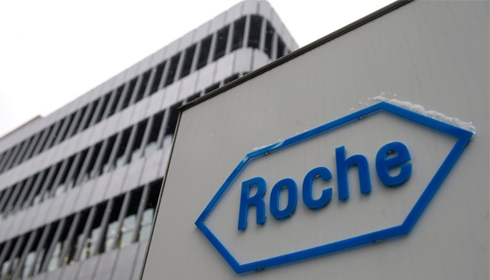
FDA Accepts Roche’s sBLA for Columvi in Treating Relapsed DLBCL Patients
The FDA has approved Roche's supplemental Biologics License Application (sBLA) for Columvi (glofitamab), a significant step forward for patients with relapsed or refractory diffuse large B-cell lymphoma. Roche intends to address the unmet needs of those ineligible for autologous stem cell transplantation with the combination of Columvi, gemcitabine, and oxaliplatin (GemOx). The FDA's conclusion is due on July 20, 2025.
Diffuse large B-cell lymphoma, the most prevalent kind of non-Hodgkin lymphoma (NHL), is a deadly cancer. While many patients react to initial treatments, up to 40% relapse or develop refractory disease. Existing second-line treatments, such as high-dose chemotherapy and ASCT, are ineffective for many patients, particularly those who are elderly or have comorbidities.
Dr. Levi Garraway, Roche's Chief Medical Officer, stressed the importance of early intervention in aggressive lymphomas, saying, "We are encouraged by the overall survival benefit seen with this Columvi combination and hope it can become an important treatment option for those in need of alternative therapies."
The phase III STARGLO study, which compared the efficacy of Columvi plus GemOx to rituximab and GemOx (R-GemOx), provides support for the sBLA submission. The results showed a statistically significant improvement in overall survival (OS) for patients treated with the Columvi combination. During the 11.3-month follow-up, patients in the Columvi group had a 41% lower risk of death and no median OS reached, compared to nine months for R-GemOx.
Columvi, a CD20xCD3 bispecific antibody, puts T-cells into contact with malignant B-cells, allowing the immune system to eliminate cancer cells. This novel technique expands on Roche's existing CD20xCD3 program, which has treated hundreds of patients in clinical trials and therapy. Notably, the FDA fast approved Columvi as the first fixed-duration bispecific antibody as a monotherapy for extensively pretreated DLBCL patients.
While the efficacy results are promising, the combined therapy poses obstacles. Adverse events (AEs), particularly cytokine release syndrome (CRS), were more common in the Columvi group, indicating the rigorous treatment cycles. CRS, while typically mild, was more common during the first few therapy cycles.
Beyond the United States, Roche has submitted the STARGLO data to various regulatory authorities, including the European Medicines Agency, demonstrating the global effort to enhance outcomes in DLBCL.
The anticipated FDA approval of this combo medicine could shift treatment paradigms for patients with few options. As cancer moves toward precision medicine, medicines like Columvi highlight the value of targeting specific biochemical pathways to improve survival.
With over 160,000 new DLBCL diagnoses worldwide each year, the approval of Columvi plus GemOx may provide hope for individuals fighting this difficult disease, especially those who have exhausted conventional treatments.